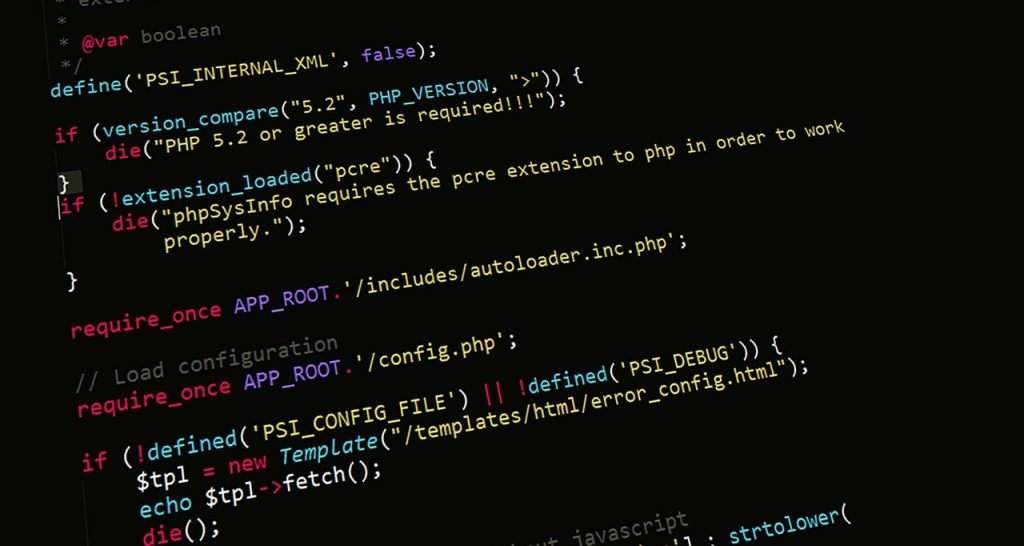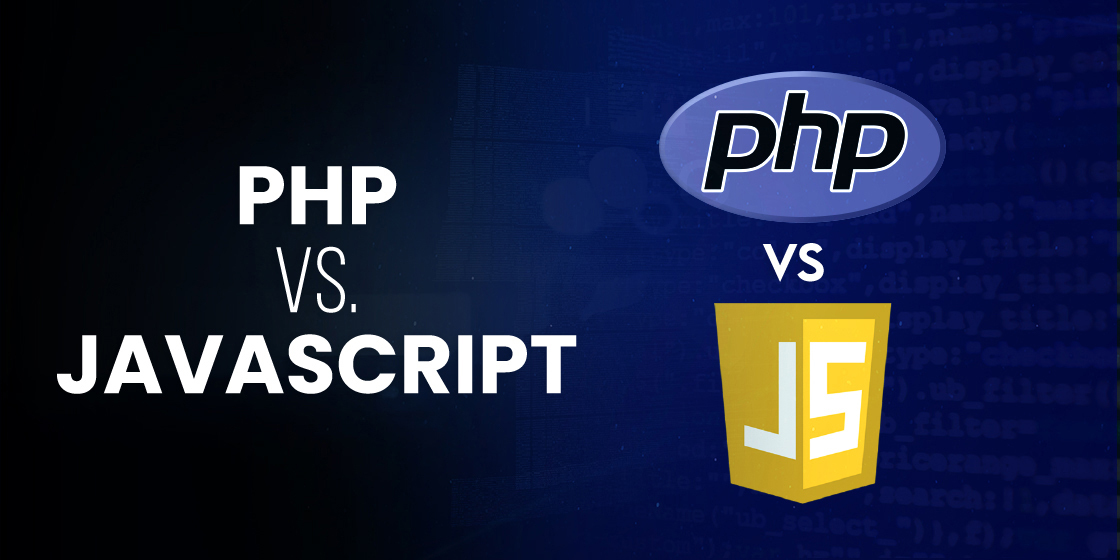Table Of Content
PHP and JavaScript are two of the most famous programming languages for web development. However, both of these have their own strengths and weaknesses, which gives rise to a frequently asked question; when it comes to choosing between PHP vs JavaScript, which one is the better option?
This article aims to help developers in finding a solution to the PHP vs JavaScript conundrum. When deciding between the two, there are a few important factors to consider. For example, PHP is a scripting language that is primarily used for server-side programming purposes. It has a large community of developers and extensive documentation, making it relatively easy to learn and use. In contrast, JavaScript is primarily used for client-side programming, such as for professional web development services and mobile app development. It is well-suited for interactive websites that require complex logic and data manipulation.
In a similar vein there are multiple differences that give one language an edge over the other, depending on the different use-cases.
What is PHP?
PHP, which is a recursive acronym for Hypertext Preprocessor, is a general-purpose scripting language that is widely used in web development. PHP code can be embedded into HTML code, or it can be used in conjunction with various web template systems, web content management systems, and web frameworks.
What makes PHP so different from something similar to client-side JavaScript, is that before the HTML code is sent to the client, it is first executed on the server. Once the script runs, the client receives its results yet remains oblivious of what the underlying code is. Developers can even go on to configure a web server for the purpose of processing all your HTML files with PHP, which makes it impossible for users to see what you have underneath,
One of the best parts about the language is that PHP is not difficult for a beginner to understand and learn. Beginners can soon begin writing simple scripts in a matter of a few hours. Yet PHP still manages to offer many advanced features for expert programmers.

What can PHP do?
PHP has the ability to do anything that can be done on other CGI programs. For instance, it can be used for collecting form data, generating dynamic page content, processing and storing cookies, adding files and directories, securing websites, and manipulating images. This is not all though, for PHP can do a lot more.
There are three main different use-cases of PHP scripts:
Command Line Scripting:
You can create a PHP script to run it without the need for a server or a browser. This method simply requires the PHP parser. This is a great way to use cron (on *nix or Linux) or Task Scheduler for programs that are run on a regular basis (on Windows). Simple text processing tasks can also be done with these programs.
Server-side Scripting:
This is PHP’s most well-known and primary target field.
To make this work, you’ll need three things: a PHP parser, a web server, and a web browser.
You’ll need to set up a web server and connect it to a PHP installation. You can view the PHP page through its server and read the PHP program output through a web browser. If you’re just getting started with PHP development, you can run all of these on your home machine.
Writing Desktop Apps:
PHP is definitely not the greatest language for writing desktop apps with graphical user interfaces, but if you know PHP well and want to leverage some powerful PHP features with your client-side applications, PHP-GTK can help you out. You can also use this method to create cross-platform applications. PHP-GTK is a PHP extension that isn’t included in the standard distribution.
What is JavaScript?
JavaScript is a programming language that is used to make mobile and desktop applications, and also for web development purposes, where it is used for the implementation of complex features on web pages, such as displaying timely content updates, showing interactive maps, animated graphics, etc.
Every time you come across such interactive web page features, it is likely that JavaScript is at play in the background. It is a client-side scripting language, which means that JavaScript code is executed by the web browser.

What can JavaScript Do?
The client-side JS language has some common programming features that allow us to perform tasks like storing values inside variables, creating strings and running code as a response to recurring events on a web page.
What’s really powerful about learning it, is that APIs which are built on top of the client-side JavaScript language, provide developers with superpowers to use them in JavaScript code.
The PHP vs JavaScript Conundrum for Developers

For a while now, certain groups of developers have bashed the argument regarding the differences between PHP vs JavaScript. While it’s true that these scripting languages cater to different sides of web development, the emergence of new front-end frameworks such as Node.js, React.js, and Angular.js brings forth a renewed interest and appreciation of JavaScript (JS).
It’s now possible to run JavaScript on the server-side with Node.js, Angular.js, React.js, and other frameworks. Web developers can now use this powerful technology to build server-based web applications, which developers could only do with PHP.
Both PHP and JavaScript are now a lot more similar in functionality which makes sense; the discussion should be about which technology offers the best solution for your project.
What Are the Differences Between PHP vs JavaScript?
PHP vs JavaScript
Although PHP and JavaScript have a lot in common, they also have many differences. These include differences in syntax and usage of both languages, which plays a big part in our discussion, because there’s more to it than what meets the eye.
The following are some core differences between JavaScript and PHP.
Availability and Community Support
A developer’s level of comfort with a language is determined, in large part, by the platform’s accessibility. PHP is an open-source language, which means developers don’t have to pay for a license.
All developers have free access to PHP’s source code, which is why it’s quite flexible in terms of allowing developers to customize it. Because PHP has a vast community, and ease of deployment, many big companies use PHP because of being customization-friendly. Facebook has leveraged this positive factor of PHP and has made its own PHP engine.
Contrary to PHP, JavaScript is not an open-source language. JavaScript is an open standard technology rather than an open-source one. An open standard language is free, but it has a regulating body. ECMA is the governing body for JavaScript.
JavaScript is not limited by ECMA. However, web browser settings impose a strict Content Security Policy (CSP) that restricts developer access to the technology. The CSP makes it impossible for third-party JavaScript to function in browsers.
Universality
Both JavaScript and PHP may be used to develop web applications and mobile apps. PHP was initially designed for the web, but both languages are now available in mobile development.
JavaScript, on the other hand, is more adaptable than PHP because it can execute on a wider range of platforms. JavaScript may be used for both back-end and front-end development thanks to the Node Package Manager (NPM) ecosystem.
You can’t write mobile apps using PHP since it was designed for the web and doesn’t support specialized APIs like Native SQL.
PHP is best suited for back-end development, whereas JavaScript is ideal for both back-end and front-end development. To summarize, I can say that JavaScript is more universal than PHP.
Security
Although a language’s security does not have an immediate influence on performance, it is still strongly related. In today’s environment of cyber-attacks, a programming language should be safe for development. PHP is more secure than JavaScript since it is a cross-platform language that doesn’t expose its source code in the browser.
JavaScript can be run on the client side, which can expose it to attackers. HTML features like Drag and Drop field selection and default right-click open files are also possible.
JavaScript serves as a doorway to hackers, while PHP does not. JavaScript has several security problems that PHP lacks, but you can safeguard the JavaScript code by using development protocols like HTTPS and SSL and receiving threat intelligence. Differences aside, both JavaScript and PHP have a range of software testing tools for efficient bug fixes.
Learning Curve
JavaScript is a complex programming language to learn, especially because it’s an object-oriented language. PHP, on the other hand, is a procedural programming language with no object model. A procedure language implies that each of its functionality exists separately; whereas, an object-oriented language includes modules that accomplish distinct functions.
I’m sure that with time, JavaScript has a steeper curve to learn than PHP. Object-oriented programming ideas (OOP) do, however, make the language easier to comprehend over time (OOP). If you have any OOP expertise, JavaScript will be simpler to understand.
Performance
When comparing the performance of JavaScript vs PHP, a number of variables should be considered. First, you must verify if your program is capable of executing I/O operations such as reading and saving files.
A basic understanding of the differences between server-side and client-side programming is necessary. Server-side programmability enables you to create custom APIs that respond to HTTP request variables, which are usually higher concurrency applications that perform resource-intensive operations such as data parsing and image encoding. You must also understand how many requests your application will receive, network latency, and so on.
Memory usage can be high in I/O-intensive programs, and they might require caching. JavaScript is a multiplatform language that runs on a variety of platforms, including Windows, Linux, Android, iOS, and Mac OS X. PHP, on the other hand, only runs on Linux and Windows. If your application can handle I/O-intensive operations like reading and writing files, JavaScript appears to outperform PHP.
Extensibility
JavaScript and PHP are both extensible languages. Frameworks, on the other hand, function better with JavaScript. Angular.js, React.js, and Vue.js are all JavaScript frameworks that work on the front end.
PHP is extendable, but js-based technologies perform significantly better because JavaScript has non-blocking I/O models.
You can also mix JavaScript, HTML, Ajax, and XML. That doesn’t imply you can’t enhance PHP beyond what’s possible with the LAMP stack. It’s also feasible to use the LAMP stack technologies such as MySQL to extend PHP.
Speed
Depending on a number of factors such as hardware, bandwidth, and connections, JavaScript or PHP scripts run at different speeds. Because JavaScript is event-driven and utilizes the input-output execution model (I/O), it runs significantly faster than PHP.
The execution model in Node.js is non-blocking. It implies that a program can run on many CPUs in parallel.
The program’s architecture divides programs into tasks and assigns them to different processors without the programmer having to do anything. Node.js’ asynchronous and event-driven architecture also lets JavaScript take full advantage of multi-core CPUs.
Because PHP is synchronous and executes only one line of code at a time, it is slower. PHP interprets scripts from beginning to end, line by line. If data from a database is needed, the rest of the program will not run.
Syntax
The syntax is the way a developer expresses code. The syntax is more of a preference than a hindrance to performance. When comparing JavaScript vs PHP, programmers can see that while JavaScript is less verbose, it is also less clear.
The syntax of JavaScript, however, is more challenging. Note that syntax has no impact on performance directly, but those who are familiar with the syntax can produce better code faster than those who aren’t. I can state that for both languages, syntax is a win-win situation.
Similarities between JavaScript and PHP
Without a doubt both JavaScript and PHP are different from each other. But in some cases, especially with the involvement of Node.js which is used by the PHP development company, they also share some similarities with each other.
Ubiquitous
When PHP and JavaScript are used together, it has a huge effect on websites. They both work extremely well together for web development, with the added benefit of multiple features. While PHP can help developers in handling backend, the frontend works well with JavaScript. Thus, when both of these programming languages are used together the increase of libraries, frameworks as well as community support for codebases make it a more powerful JavaScript tools. What can be said for sure, is that whenever both of these languages are involved together, the likelihood of finding a solution to a problem increases by tenfold.
Interpreting Languages
Both, PHP and JavaScript, are interpreting languages. What this means is that the code written in these languages is read and executed line by line. This helps in making small changes to the code without having to recompile the entire thing again, which can be a time-consuming process.
These languages also have a similar C-style syntax. What this means is that the code written in these languages will often look very similar to code that is written in languages such as C or Java. This makes it easier for developers who are already familiar with these programming languages to learn either PHP or JavaScript, and start coding right away.
Another similarity between JavaScript and PHP is that they both use dynamic typing systems. This means that instead of having to explicitly declare the data type of a variable, the programming languages will automatically infer the data type based on the value that is assigned to the variable. This can be both a good and a bad thing, as it can lead to errors in the code if the programmer is not careful.
To Sum It Up:
Both JavaScript and PHP are extremely popular programming languages, with millions of developers working with these languages every day. And while they may be different in many ways, there are also many similarities that make it easier for developers to use both PHP and JavaScript together in their web development projects. So, whether you are a developer who already knows one of these languages well, or if you are new to programming altogether, it is definitely worth learning both PHP and JavaScript to take advantage of all their benefits!
FAQs
| Is PHP safer than JavaScript? Yes, PHP is highly secured as compared to JavaScript because PHP’s code isn’t visible in the browser. JavaScript, on the other hand, provides a backdoor for hackers because it has some security flaws that PHP does not; you can protect JavaScript code by using development protocols such as HTTPS and SSL and obtaining threat intelligence. |
| Can we learn PHP before JavaScript? Yes, while both PHP and JavaScript have similar syntax styles, you can learn either of these languages first, as they’re both separate languages. However, having the knowledge of PHP can certainly help you in learning JavaScript easily. |
| Which is better: JavaScript or PHP? In 2022, JavaScript is considered as the more powerful language compared to PHP, that is because it can be used now not only for front-end, but also for back-end development. Moreover, JavaScript is far more lightweight being an interpreted compiled programming language. |
Empower your digital initiatives with BariTechSol, a premier custom software development company. Our skilled team tailors cutting-edge solutions to your unique needs. Elevate your tech experience and stay ahead in the digital realm. Partner with BaritechSol and code the success of your next big idea.


